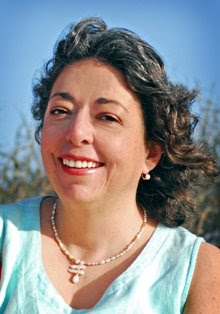
Caribbean Homes
I was born on an island in the Spanish Caribbean, Cuba. Three years later my family went into exile in the United States. However, it wasn’t until I finished graduate school in northwest Ohio in the mid-1980s, that I decided to explore my roots in the region.Returning to Cuba was not an option. We had family members in both Puerto Rico and the Dominican Republic. Unemployment was high in Puerto Rico in 1986. Yet I stood a better chance there without bureaucratic hitches common to immigrant workers.
By moving to the Caribbean, I’d hoped for a better understanding of my own heritage. My Spanish improved, my understanding grew. And one of the truths I came to know while living on this beautiful island was that I remained a Cuban exile. Puerto Rico was not Cuba.
I stayed in Puerto Rico for two and a half years, eventually finding part-time work as an English editor with United Press International. The company’s San Juan bureau covered 27 Caribbean nations, including Surinam and Guyana. That job provided me with a broad education on the region.
As a result, I became interested in Haiti. At the time I was on the English desk during the first elections that island had in 30 years. When the turmoil settled some, I decided to see Haiti for myself. I talked with two women journalists who had traveled there often, alone.As I looked out the window of the airplane at the deforested Haitian mountains, a thought popped into my head: I’m coming home. Home? I thought. Yes.
Home to Haiti.I remembered that Cuba lay a few miles west, across the Windward Passage. To date, it’s the closest I’ve been to my actual homeland.
That moment clarified my relationship to the Caribbean—no matter which island I was visiting or living on, I was home. Marisella Veiga was born in Havana, Cuba, and went into exile with her family in 1960. She was raised both in St. Paul, Minnesota, and Miami, Florida. She received a B.A. in English from Macalester College and a Master’s in Fine Arts in Poetry from Bowling Green State University. Her writing has appeared in numerous magazines, newspapers and literary anthologies. Veiga has won The Pushcart Prize XX, Best of the Small Presses, Special Mention in Fiction, the Canute A. Brodhurst Prize for Best Short Story in The Caribbean Writer. She was also given the Evelyn LaPierre Award for Journalism in Alexandria, Virginia. She is a nationally syndicated columnist with Hispanic Link News Service. Recently, Veiga released a spoken word recording with Eclipse Recording Studios that has collected a few. The CD is Square Watermelons: Ten Essays on Living with Two Cultures.
Marisella Veiga was born in Havana, Cuba, and went into exile with her family in 1960. She was raised both in St. Paul, Minnesota, and Miami, Florida. She received a B.A. in English from Macalester College and a Master’s in Fine Arts in Poetry from Bowling Green State University. Her writing has appeared in numerous magazines, newspapers and literary anthologies. Veiga has won The Pushcart Prize XX, Best of the Small Presses, Special Mention in Fiction, the Canute A. Brodhurst Prize for Best Short Story in The Caribbean Writer. She was also given the Evelyn LaPierre Award for Journalism in Alexandria, Virginia. She is a nationally syndicated columnist with Hispanic Link News Service. Recently, Veiga released a spoken word recording with Eclipse Recording Studios that has collected a few. The CD is Square Watermelons: Ten Essays on Living with Two Cultures.
No comments:
Post a Comment